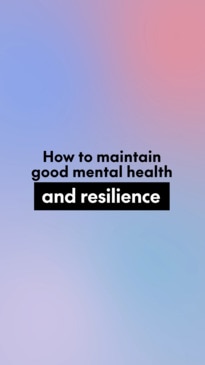Is your loneliness making you physically sick?
Heartache to heartache

According to new research, long-term loneliness could be putting your health at risk in a number of ways. Here’s what you need to know.
We’ve all experienced the gut-wrenching impact a stressed or anxious state of mind can have on our bodies, but new research suggests loneliness could be just as detrimental to our overall health and well-being.
Previous studies into the impact of loneliness on an individual’s quality of life indicate a sense of community is crucial for managing psychological and emotional symptoms, but a recent study published in the journal Nature suggests it could also significantly lengthen a person’s lifespan.
The data uncovered in the research reveals a link between sustained loneliness and higher levels of several proteins associated with illness and death.

Loneliness could be harming your protein levels
Despite health outlets and dietitians endorsing the benefits of protein in our diet for decades, experts say certain proteins in the blood should ideally be monitored.
Using UK Biobank data collected from 42,000 participants, researchers measured each individual’s protein levels – significant markers of many health conditions – to understand any correlation between social isolation and loneliness and their overall health.
Acknowledging contributing factors such as age, sex, smoking and alcohol consumption, and education level, researchers found 175 proteins associated with social isolation and 26 proteins associated with self-reported loneliness.
Furthermore, higher levels of most of these proteins were found in the participants who self-reported social isolation (9.3 per cent) or loneliness (6.4 per cent) and are associated with inflammation, antiviral responses and the immune system.
“We found around 90 per cent of these proteins are linked to the risk of mortality,” one of the study’s co-authors, Dr Chun Shen from Fudan University in China, tells The Guardian.

The real cost of loneliness
Looking at the bigger picture in hopes of understanding the long-term impact of social isolation on a person’s health and mortality, researchers tracked each participant’s health over a 14-year period.
“Notably, more than half of these proteins were prospectively linked to CVD [cardiovascular disease], T2D [type 2 diabetes], stroke, and mortality during a 14-year follow-up,” the researchers write.
“I think the message is that we’ve got to start to get people to realise that it’s part of a health thing, both for their mental health and their wellbeing but also for their physical health, that they have to remain connected with other people,” explains Professor Barbara Sahakian, another co-author of the study at the University of Cambridge.
According to Sahakian, the World Health Organization has declared social isolation and loneliness a major problem in the world.

What came first; the proteins or the loneliness?
After gathering the data from the study’s participants, researchers applied a method known as Mendelian randomisation to understand whether people with genetic variants associated with loneliness were more likely to have higher levels of the proteins in question, or the other way around – determining if the proteins are a driver, or an effect, of social isolation or loneliness.
Rather than loneliness being caused by the heightened levels of proteins, researchers specify that the association was reversed, with isolation and loneliness influencing the body’s ability to produce and manage its levels of five proteins.
“A significant contribution of this study is that it now elucidates the biological mechanism – proteins – that may be responsible for the observed connections,” Prof Marko Elovainio, from the University of Helsinki, tells the Guardian.
Elovainio suggests stress-related health behaviours, such as heavy alcohol consumption and low physical activity, are more likely to impact the body’s health response to loneliness, and should be our first call to action when it comes to addressing the growing rates of loneliness around the world.
“How society should … reduce the health risks related to loneliness is the interesting question, and if we want to focus on the mechanisms, the behaviour is probably [an] easier target than proteins,” he says.
More Coverage
Originally published as Is your loneliness making you physically sick?





